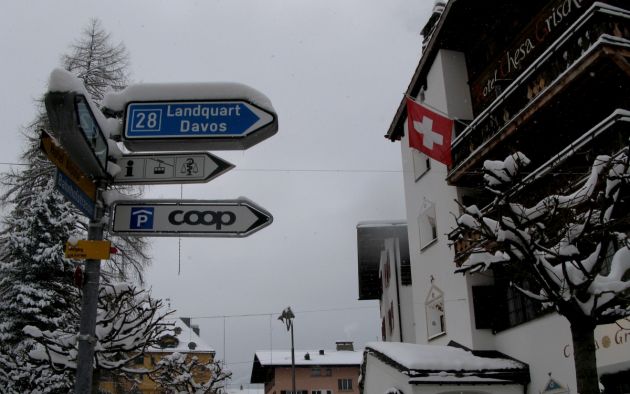UK's Christian Aid urges Davos meeting to act on Swiss banking secrecy

As a country known globally for industries such as watchmaking and banking Switzerland has faced accusations of allowing itself to be used for money laundering due to iit secrecy laws for lenders.
Before politicians and business leaders gather in Davos from Jan. 20 to 23 for the World Economic Forum, Christian Aid questioned whether Switzerland is an appropriate host country saying it is a haven for "dirty" money from poor countries.
The claim that Switzerland is used for money laundering through its banks has been strongly rejected by the Swiss Bankers Association.
"Its role in helping the wealthy and powerful evade hundreds of millions of pounds of tax was exposed last year (2015) in the SwissLeaks scandal, when details of the HSBC Swiss bank accounts of 106,000 clients across 203 countries were leaked to the media," said Christian Aid.
Joseph Stead, Christian Aid's Senior Adviser on Economic Justice, "The WEF claims it is 'committed to improving the state of the world,'" noting it means taking a serious approach to financial probity.
"With so many of the most powerful politicians and businessmen in one place, they could make the Swiss agree to clean up their act," said Stead. "Otherwise the question remains – why continue to hold such a prestigious conference in a country that effectively encourages crime?"
UK-based Christian Aid cited a new Oxfam report cites which estimates that worldwide, rich individuals have placed a total of $7.6 trillion in offshore accounts.
It said the Oxfam report states that as much as 30 per cent of all African financial wealth is thought to be held offshore.
Christian Aid said SwissLeaks showed that secret bank accounts in Switzerland itself were being used to drain poor countries of staggering sums of money, much of it illegally through tax evasion and corruption.
"The outrage prompted by SwissLeaks forced Switzerland to agree to tell fellow rich countries about their citizens' Swiss accounts," said Stead. "But it has done no such thing for poor countries, where people are dying for want of basic public services."
'DEVELOPING COUNTRIES HARDEST HIT'
Developing countries were hardest hit by HSBC's Swiss bank, relative to the size of their economies, according to Swissleaksreviewed.org - an analysis of the data by Christian Aid and the Financial Transparency Coalition found.
Stead said, "While people from developing countries had smaller absolute amounts in HSBC Switzerland accounts, their countries lost more than rich ones, relative to the size of their economies. This is cash they can't afford to lose."
Claude-Alain Margelisch, CEO of the Swiss Bankers Association told international journalists in Geneva on Jan 12 that it is a myth that Switzerland makes it easy for criminals to launder money.
"Switzerland very actively fights against cross-border financial crimes such as money laundering and the financing of terrorism.
"Our country has a broad legal foundation with which to prevent unlawfully acquired assets from entering Switzerland, for example the Swiss Criminal Code or the Federal Act on Combating Money Laundering and Terrorist Financing.
"In addition to this are the ordinances of the Swiss Financial Market Supervisory Authority FINMA, as well as the banks' self-regulation rules," he said.
"These are also of a binding nature for the banks, and compliance is monitored. As a result of these laws, the banks are, for example, obliged to always identify their contracting partner and to determine the beneficial owner of the assets."
He said banks are obliged to report every suspicious transaction to the Money Laundering Reporting Office and in suspicious cases, to immediately freeze the account in question.